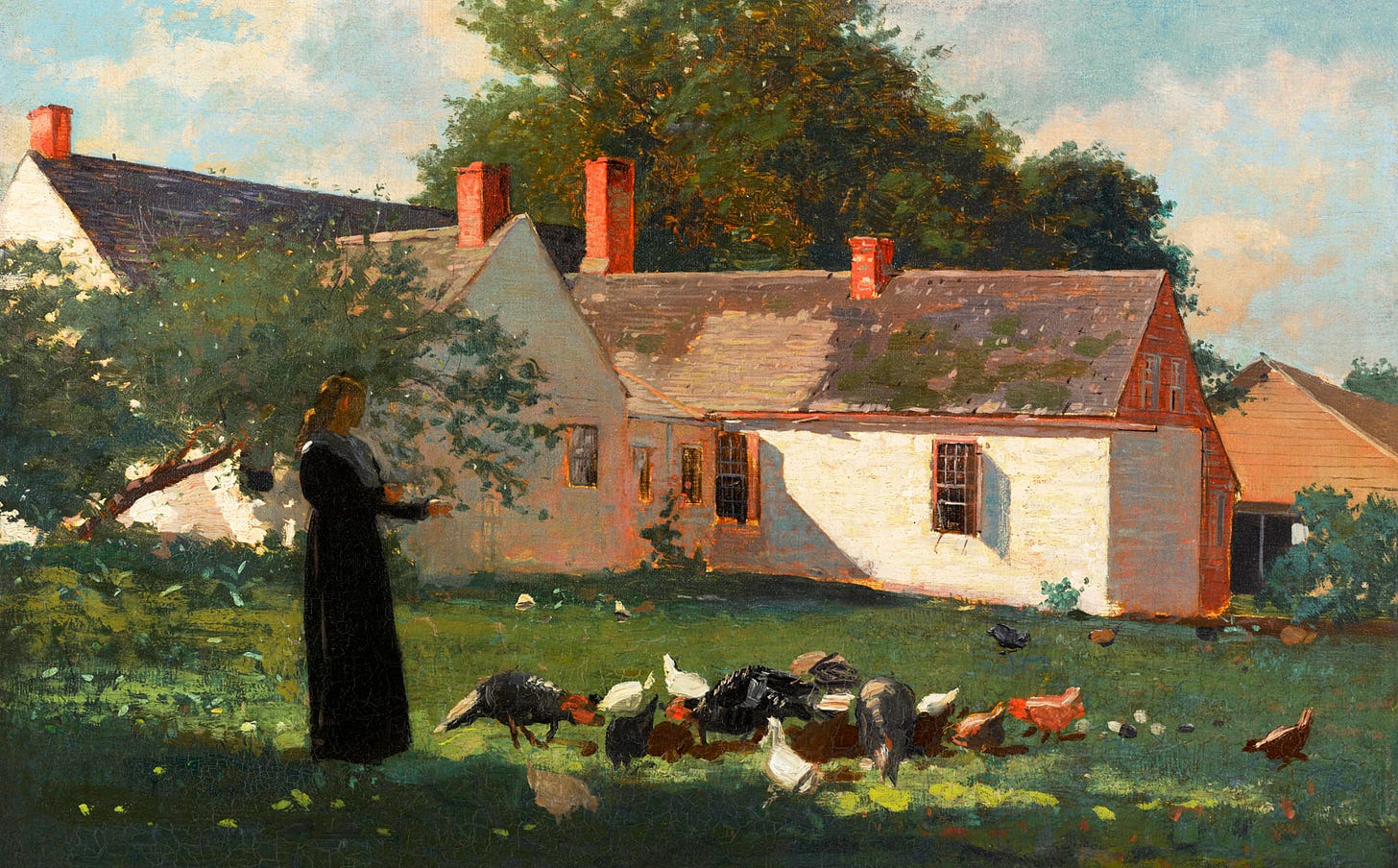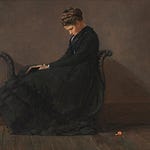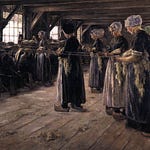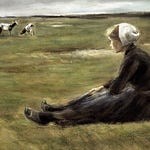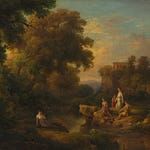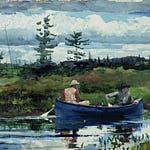It took us close to five years to find our first farm. I suppose the first few years of that time we were more about investigating than actually being in the realm of possibly buying. We were collectors then, collecting information and understanding. We were collecting the fodder we needed to build the reality of a farm we wanted but had no idea how we would ever get. We were conspiring in a new reality for ourselves. In this essay I want to both get into the logistics of how we were able to buy our first farm, including our must-haves and deal-breakers, and I also want to get into what was the bigger part of us finding our new ways of being - the mindset we had (and have) that consistently brings things into our lives in ways unimaginable to us.
There was a time in my childhood where our family lived in a home in the country, tucked into a corner of my grandparents’ farm. It was the most formidable and missed time of my life. A pivotal turning point happened in my young life when our house there burned down and we moved into the city. From that moment forward, everything in my life changed. I never stopped dreaming of my days watching clouds while lying on a bed of wheat in the fields or the song of the prairie birds.
As an adult it was my passion around nutrition and feeding our family that saw me return to school to become a nutritionist and, even better, meet many farmers. My husband’s military career meant frequent moves for our family which necessitated finding new farmers to source our raw milk and food wherever we went. This meant that we were able to visit all sorts of different farms and build relationships with farmers of all ilk. Over time, I started volunteering on the different farms that fed us. Sometimes that was just pulling weeds and shovelling poop. It didn’t matter. It gave me access to conversation and discussions around why some farmers did things differently than others. I started to build my understanding of livestock care and challenges, gardening and foraging. I was returning to a relationship with the earth.
I soon came to learn that every farm is its own ecosystem. Or at least it should be. How one farmer raises and milks their goats will look quite different from what another does. Maybe they found that different fencing works better on their patch of land. Maybe one prefers a breed another dislikes. One may struggle with parasites and the other has no issues at all. I learned to ask a lot of questions and listen. What else was there for me to do at that time? Like I said, I was a collector. We weren’t in a situation to own our own farm, heck we didn’t even know where we would be living a year down the road, but there was plenty I could do to get ready for the day when I would have my own place.
How we would ever have our own farm, I had no idea. We were cash strapped and renting military housing. The “reality” surrounding me was struggling to keep up with our pricey grocery bills (real food was not something we ever compromised on) and raising three young daughters with a husband that was frequently away. I remember counting the days he was gone one year and it amounted to somewhere around 300. But I’ve never really been one to get bogged down in the things I have no say over. There was plenty I could do and that’s where I set my sights.
In the building of relationships with our farmers, I was able to spend hours upon hours of learning directly from the source. It’s been my experience that the offering of some physical labour, being dependable and humble, and a willingness to learn has been what has reaped the most benefits for us as a couple in our learning journeys. So few people want to do that anymore. It’s like deferring to someone else’s knowledge somehow negates your own. Such shaky little egos we have. Don’t do that. Be humble. Close your mouth. Listen. Learn. Do.
In addition to learning from our farmers, I spent years sitting on library floors with my daughters. They reading their treasures and me reading everything I could on farming. I read about soil. I read about minerals. I read biographies. I read animal care books. I read books from the 1800s to see how they used to do things. I read about the threats to seed and food from agro-chemicals. I got involved with fighting for raw milk and small farms. We rented plots of land to grow our own summer produce on. We supported CSAs and worked with them when we could. I started a buying club for organic fruit, eggs, organic grocery products, raw milk (shhh…), and even things like organic, authentic olive products direct from Greece and preserving jars. If I wanted it and it wasn’t there, I got it going.
I also took courses at that time. I took courses on alternative funding and working models when starting a farm. I took courses on animal husbandry, rotational grazing, holistic management, animal butchery, permaculture, and biodynamic farming principles and approaches. I was living on a military base with zero savings in the bank, a little compact car that we squished our family of five into, and no prospects of making that farm happen. I just knew it would and I kept moving in the direction of my passions. The details weren’t mine to solve.
Years later, I came to understand that in every course or workshop, I was aligning myself with the reality not as it was, but as I knew it would be. I can’t emphasize the importance of this enough - no matter the subject matter. We bring into our lives what harmonizes with our every atom. If we are aligned with hopeless despair, prepare to be despaired. If we look for the ugly and hopeless because we think that’s what the world is, well then, we’re right. That is the world we create.
I now understand how important this perspective was (and remains to be). At the time, I just followed my hunger and filled it in as many ways as I could. I thought it was important to learn while I could so when I did get some land, I would be ready to go. I knew that we would be older when we finally got to buy land. I was already in my thirties at that time. We didn’t have a farm to inherit. We wouldn’t be getting any windfall from good ole’ Aunt Martha. It was all going to have to come from us. Somehow.
I’ve come to learn the lesson of co-conspiring with God again and again in my life. Some people call it manifesting. It is that, yes, but it’s not as if it’s some magical trick where you keep dreaming of a yellow Lamborghini and you wake up one morning and there it is in your driveway. For me, bringing the things into my life that I would like to is simply the alignment of knowing in my bones that the dream of my heart is a calling. And a calling is divine. And Divinity does not make mistakes. I just need to





